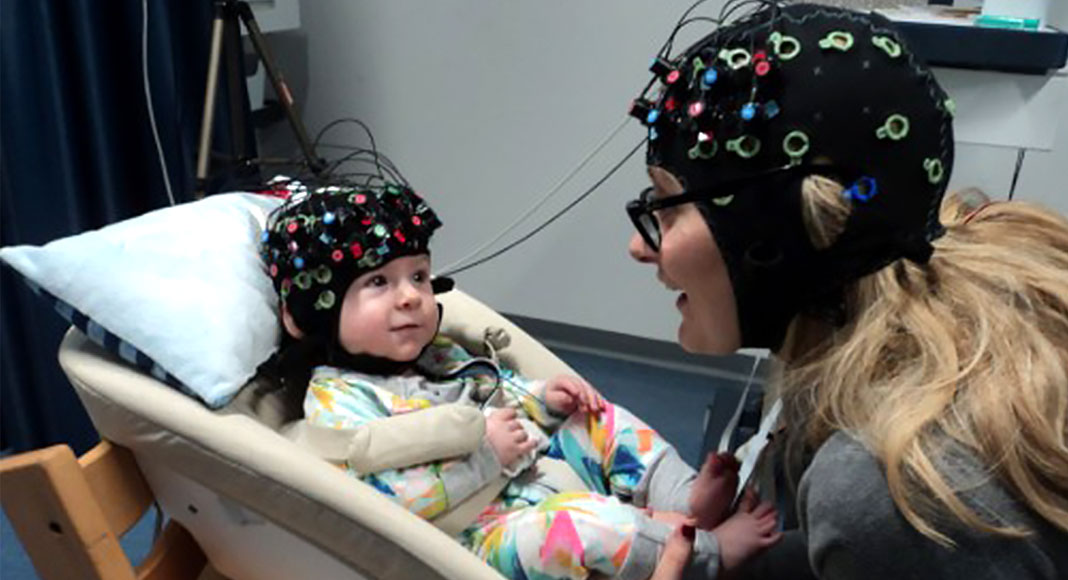
Mega Doctor News
Touch is fundamental to interpersonal communication. Until recently, it was unclear how affectionate touch and physical contact affect the brain activity and heart rhythms of mothers and babies. Developmental psychologists Trinh Nguyen and Stefanie Höhl from the University of Vienna have investigated this question in a recent study. Brain activities between mothers and babies were synchronized – especially when they had close physical contact and when the mother stroked the baby lovingly. The heart rhythms of mothers and babies were attuned when they played together. The study is currently published in the journal NeuroImage.
Affectionate touch and bodily contact create social connections and can reduce stress. In romantic couples, this positive effect has been linked to a mutual alignment of brain activity and heart rhythms. Since touch is a fundamental mode of communication between caregiver and infant, Trinh Nguyen, Stefanie Höhl and colleagues from the US asked whether proximity and touch also contribute to the attunement of brain and heart rhythms between mother and baby.
In the new study, four to six-month-old babies played and watched videos together with their mothers. Functional near-infrared spectroscopy (fNIRS) was used to measure brain activity while electrocardiography (ECG) was used to simultaneously assess the heart rhythms of mother and baby. With fNIRS, changes in oxygen saturation are recorded in the outermost layer of the brain – here in particular in the frontal brain. Activation in this region is associated with mutual emotional attunement, attentiveness, and self-regulation. These processes are particularly relevant for social interactions and develop during the first years.
The results showed that mother-baby pairs mutually adjusted their brain activity, especially when they touched each other. Mutual neural adjustment occurred when the mother held the baby close to her body and both watched a video together, and when they played together face-to-face and the mother lovingly touched the baby, e.g., by kissing, stroking and gentle massage. The new study demonstrates that touch plays a fundamental role in the early adaptation of brain activity between mothers and infants. An adaptation of heart rhythms was also shown when mother and baby played together, but it was independent of touch. In the case of the heartbeat, a mutual adaptation was particularly evident when babies signalled discomfort, which was presumably transmitted to the mothers.










